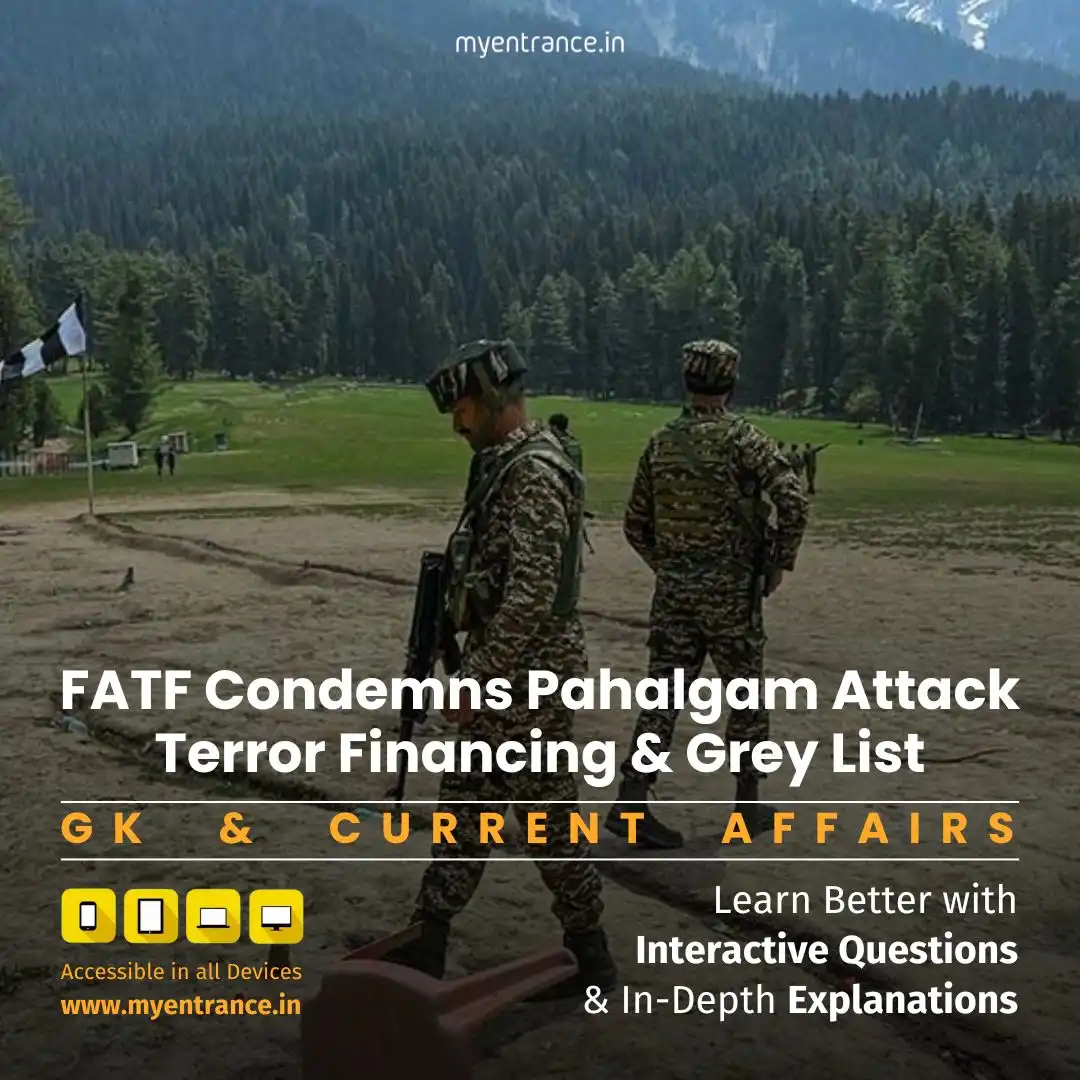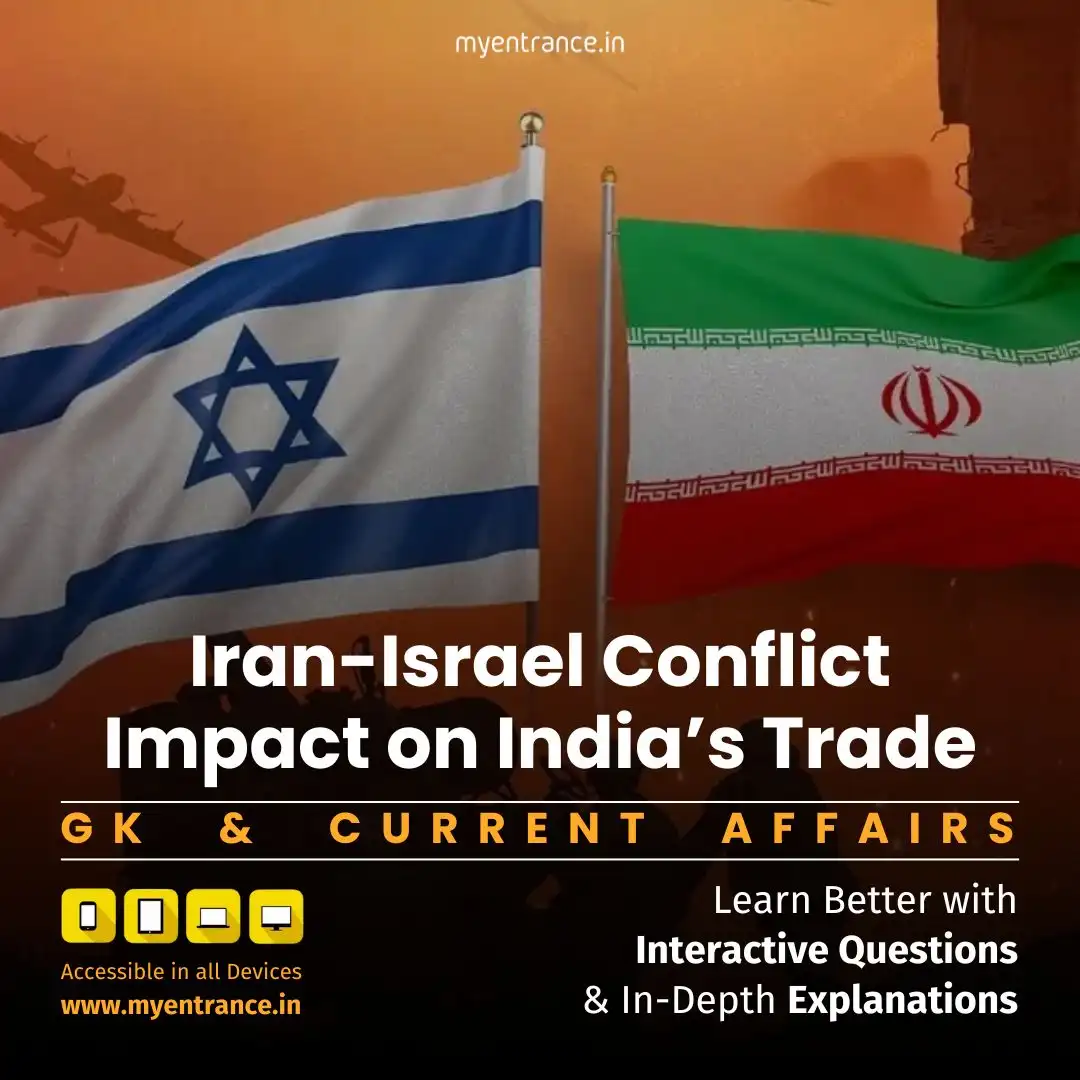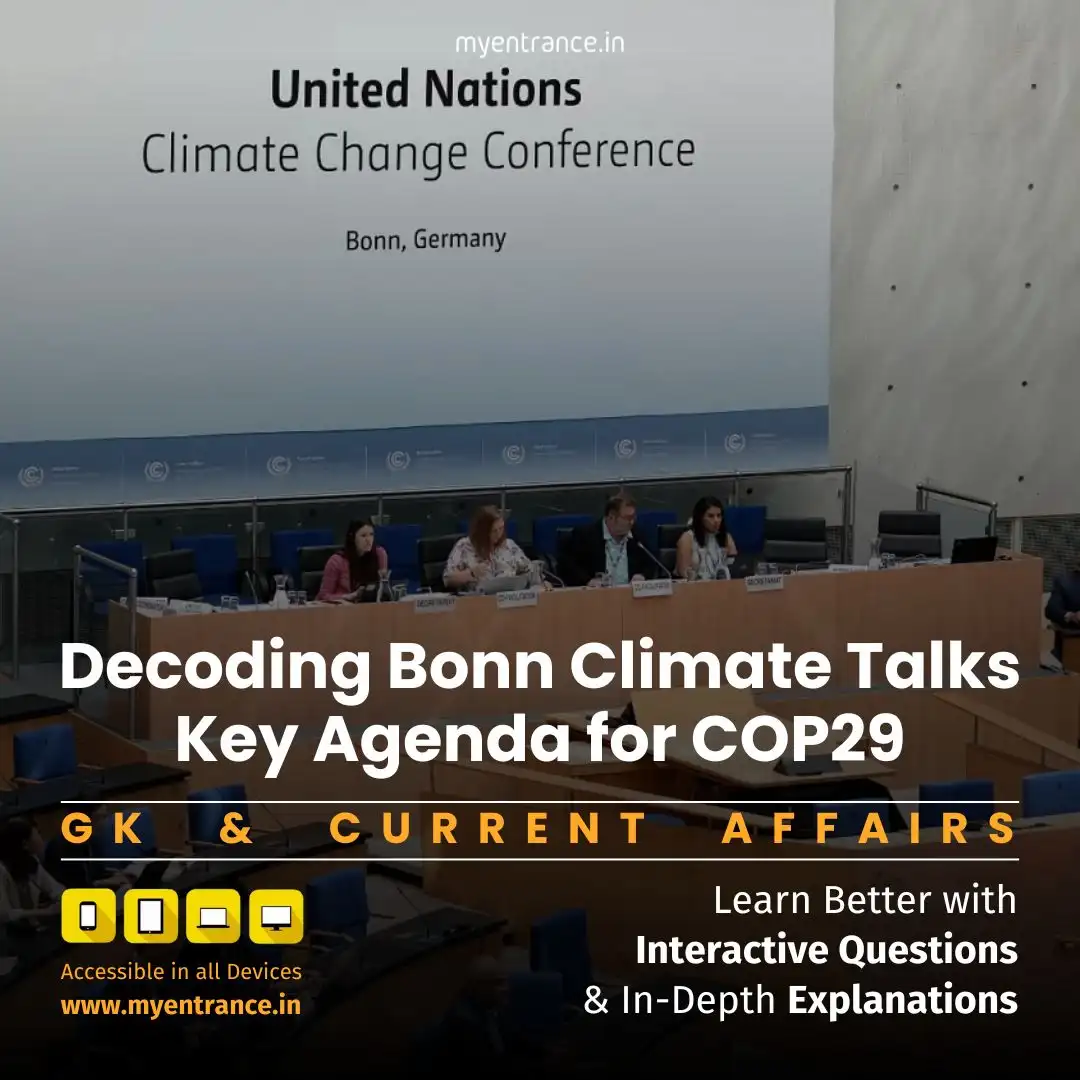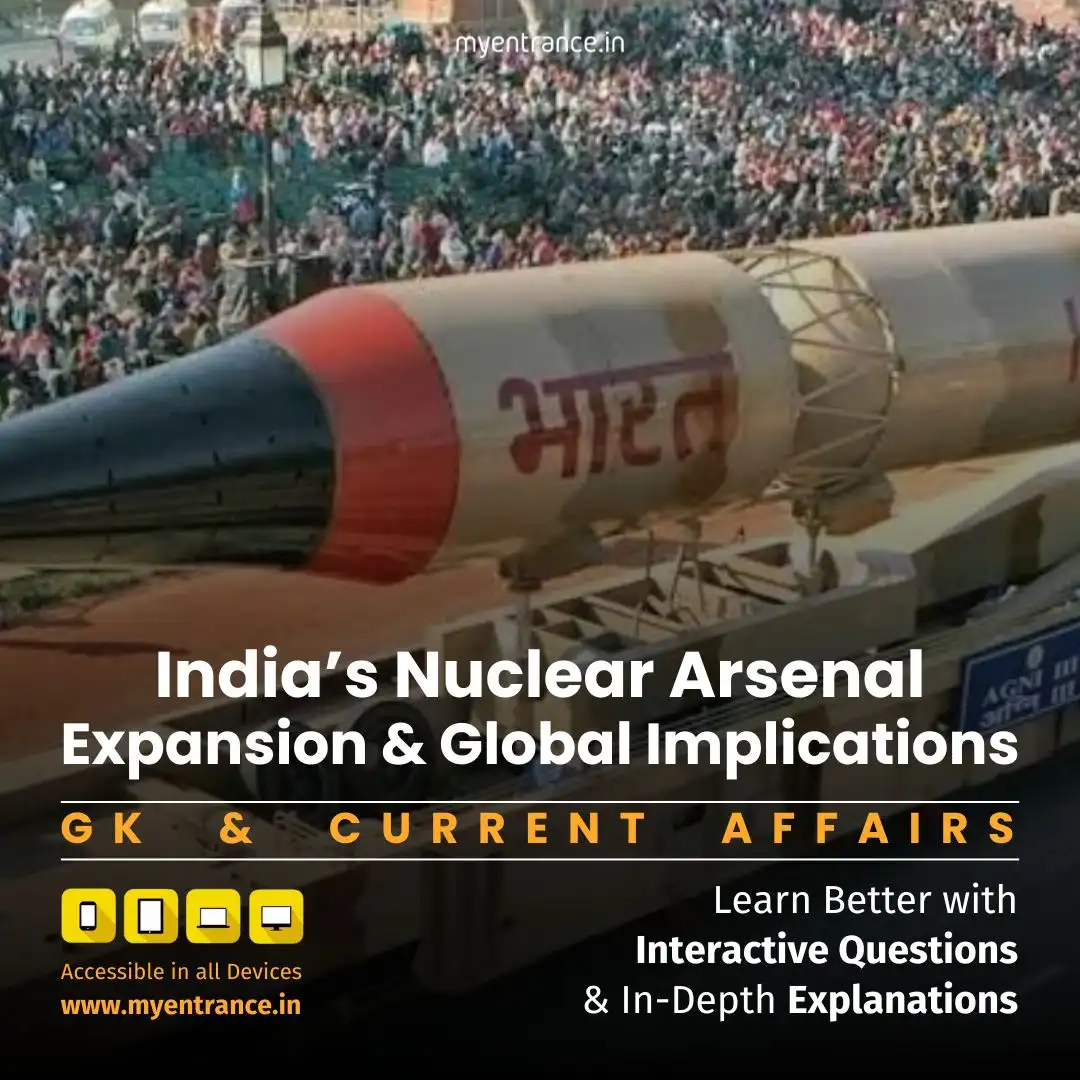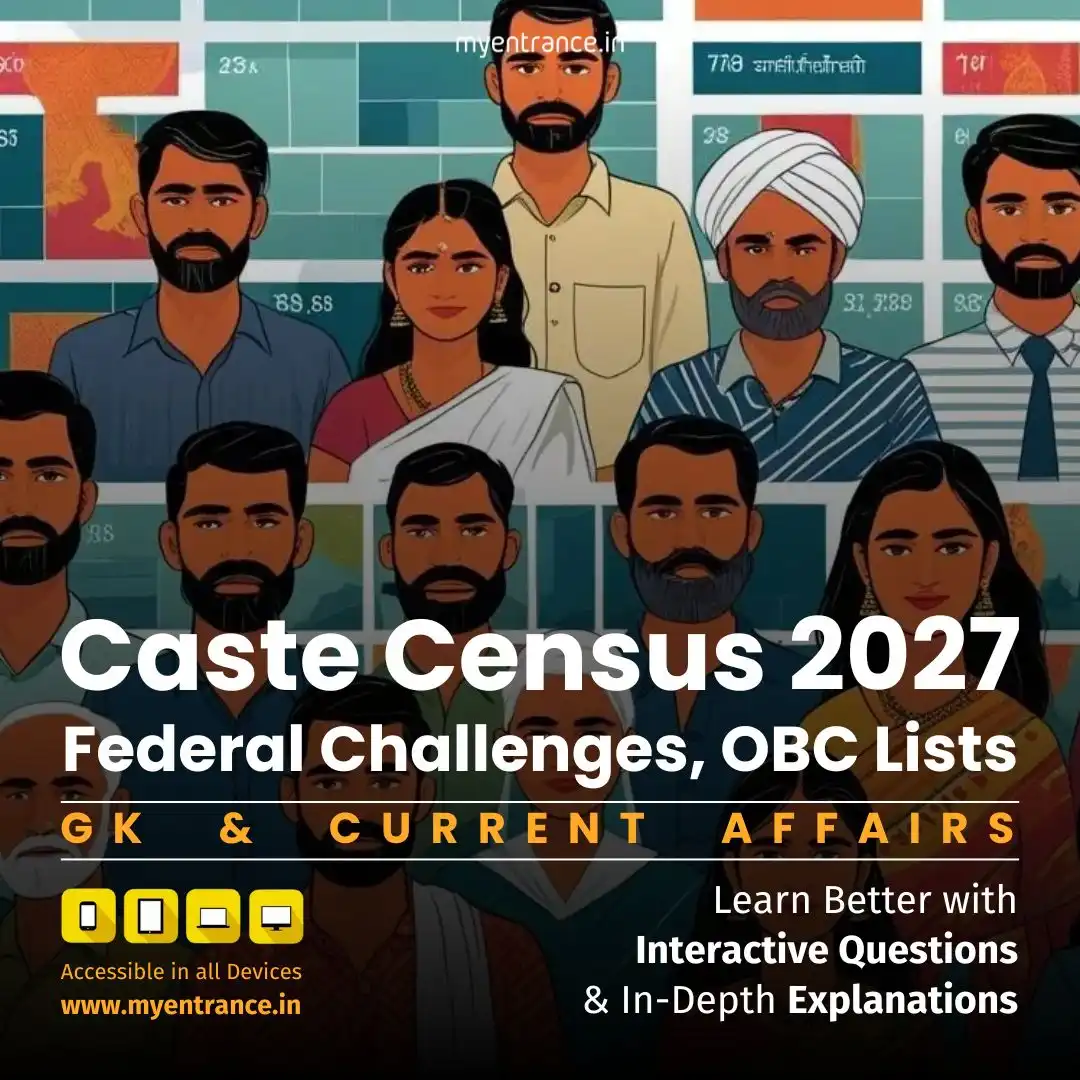Select Language
FATF Condemns Pahalgam Attack: Terror Financing & Grey List Impact
The Financial Action Task Force (FATF) has condemned the Pahalgam terror attack, highlighting terror financing as its root cause. This global watchdog’s response underscores its critical role in curbing illicit funds for terrorism – a key topic for competitive exams.
FATF: The Global Financial Watchdog
Formed in 1989 as a G7 initiative, FATF is the premier intergovernmental body combating money laundering and terror financing. With 40 member countries (including India since 2010), it sets global standards through its 40 Recommendations across 7 key areas:
Anti-money laundering (AML) policies
Terrorist financing prevention
International cooperation
Transparency in financial systems
Pahalgam Attack: FATF’s Stern Warning
After the April 22, 2025 attack in Jammu & Kashmir (26 killed), FATF stated:
“Such attacks cannot occur without money and the means to move funds between terrorist supporters.”
This directly references cross-border terror financing networks, with India implicating Pakistan.
FATF’s Enforcement Tools: Grey List & Beyond
Grey List: Countries with strategic deficiencies in combating financial crimes (e.g., Pakistan was listed 2018-2023).
Black List: Nations failing to cooperate (e.g., North Korea, Iran).
India is pushing for Pakistan’s return to the grey list post-Pahalgam.
Operation Sindoor: India’s Military-Diplomatic Response
India’s May 7 retaliatory strikes in PoK triggered a 3-day military standoff. FATF’s condemnation strengthens India’s case by:
Validating terror-financing links to attacks.
Pressuring Pakistan to dismantle terror infrastructure.
Boosting India’s global counter-terror diplomacy.
Why FATF Matters for India
Security: 90% of terror attacks in India trace funding to cross-border networks.
Diplomacy: FATF platforms help isolate nations sponsoring terror.
Economy: Compliance prevents financial sanctions and attracts foreign investment.
Key Exam Takeaways
FATF’s mutual evaluations assess countries’ anti-terror financing systems (India’s latest: 2023).
“No Money for Terror” conferences (e.g., Munich 2025) drive global cooperation.
FATF’s mandate expansion (2001) to include terror financing post-9/11.
Sample Q&A (Current Affairs Focus):
Q: What is FATF’s primary mandate?
A: To combat global money laundering and terror financing through policy standards and country evaluations.
Q: How does the FATF grey list impact countries?
A: It signals high financial risk, triggering economic sanctions, reduced FDI, and restricted international loans.
Q: Why did FATF condemn the Pahalgam attack?
A: It emphasized that terror attacks require illicit funding networks, indirectly supporting India’s stance against cross-border terror finance.
Q: When did India become a FATF member?
A: 2010 – and it exited the “regular follow-up” category in 2013 after reforms.
Q: What are FATF’s 40 Recommendations?
A: A framework covering 7 areas, including AML policies, terror financing prevention, and international cooperation.
Most Predicted Questions
Comprehensive study materials, Expert-guided tips & tricks, Mock tests and instant results.
Start your SSC, NIFT, NID, FDDI, PSC journey today with MyEntrance, your ultimate online coaching platform.
